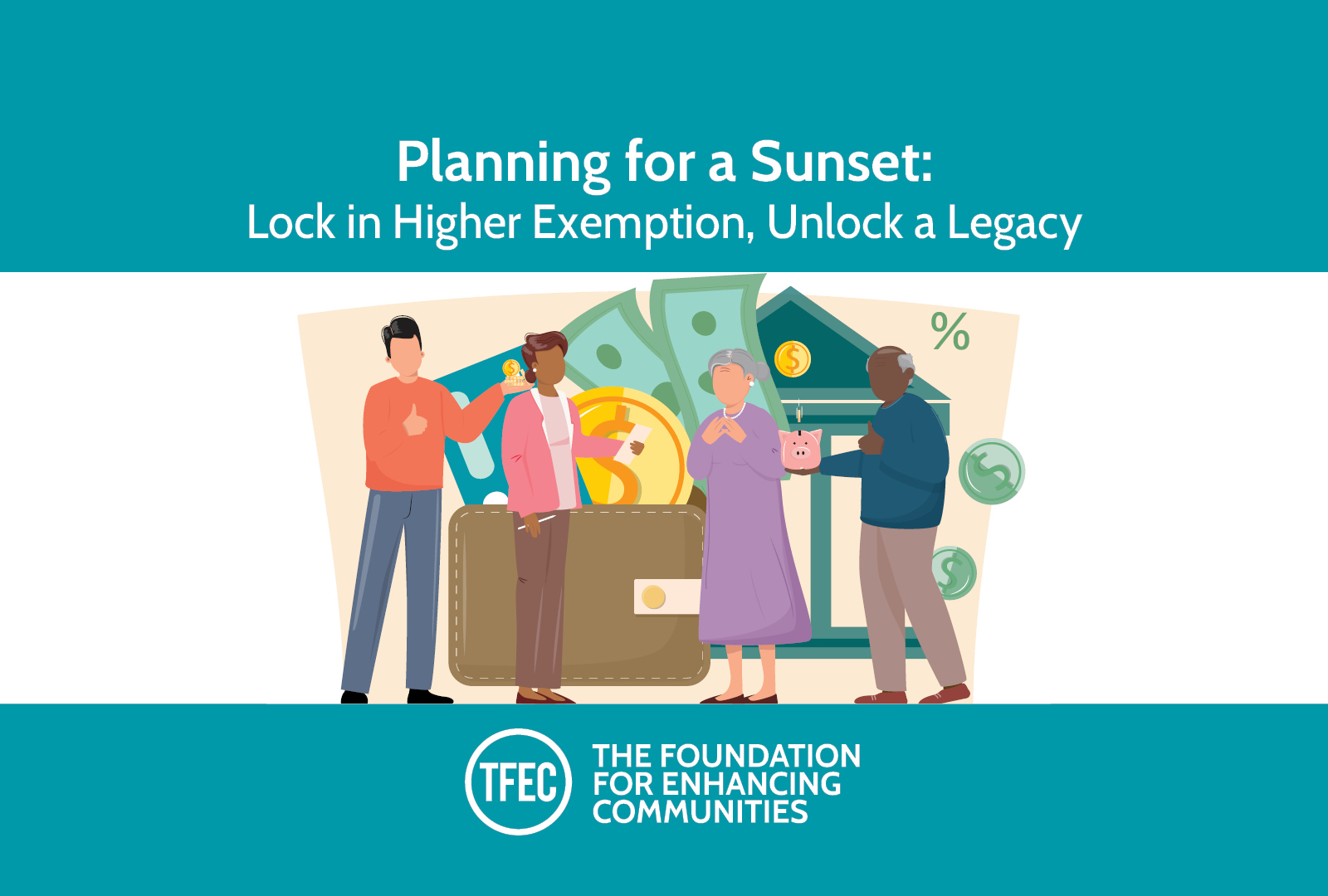Without legislation to prevent it, the sunsetting of current estate tax laws at the end of 2025 will dramatically reduce the federal estate tax exemption from $13.61 million per person in 2024 to approximately $7 million in 2026 (this includes adjustments for inflation). This change would affect many high-net-worth individuals and families, likely exposing many more estates to federal estate taxes.
It is impossible to predict whether legislation will prevent the sunset. Even so, it is important for advisors to prepare for client discussions and start considering estate planning strategies now, especially techniques that incorporate multigenerational gifts and charitable planning.
Indeed, for a client who is charitably inclined, making larger lifetime gifts to charity and arranging for charitable bequests will help reduce the client’s taxable estate because of the charitable estate and gift tax deduction. Donor-advised, area-of-interest, designated, unrestricted and endowment funds at The Foundation for Enhancing Communities (TFEC) are flexible and effective charitable recipients of both lifetime and estate gifts.
For some clients, you may wish to begin exploring a comprehensive, multigenerational wealth transfer plan, potentially using key tax-planning vehicles:
Charitable Lead Trust
Charitable lead trusts (CLTs) may be particularly effective in the current environment. These trusts can provide income to your client’s fund at TFEC for a set period of time, with the remaining assets passing to family members. Right now, the higher exemption allows for potentially significant initial funding of such trusts. This is because the value of the remainder interest counts toward the client’s estate and gift tax exemption.
Multigenerational Fund
Alongside a charitable lead trust or generation-skipping trust, or as a standalone, a client can establish a donor-advised fund at TFEC that can function much like a family foundation, with successive generations serving as advisors. Another possibility is to have TFEC step in after the first or second generation, to recommend grants from the fund to carry on a tradition of supporting the causes that have been most important to the client during the client’s lifetime.
Our team looks forward to working with you to achieve your clients’ long-term charitable goals, even amid uncertainty concerning estate tax laws.

